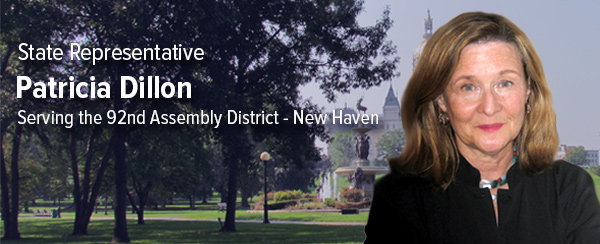
January 14, 2009
LEGISLATOR ADDRESSES 'BLATANT CLASS BIAS'
By Angela Carter, Register Staff
HARTFORD — Someone arrested for soliciting a prostitute in a vehicle can lose their car. Someone selling drugs out of their home can face having the house seized.
But state statutes do not authorize the seizure of assets belonging to financial advisers or money managers who defraud their clients.
State Rep. Patricia A. Dillon, D-New Haven, wants that to change — this year.
"It's a matter of justice to have some parity between white-collar crime and street crime," Dillon said Tuesday. She wrote the legislation after hearing about the millions of dollars New York financier Bernard L. Madoff is accused of taking from investors, including his sister and clients from Connecticut.
"This strikes me as blatant class bias," Dillon said. "White-collar criminals should not receive preferential treatment. We seize the car of a 'john,' but Bernie Madoff can stay in his penthouse apartment living off the savings of his victims? My legislation will address this inequity and give the victims of securities fraud hope for restitution."
Madoff was arrested Dec. 11 for allegedly running a Ponzi scheme. The investing scam promises consistent returns at little risk. They stay afloat artificially by paying returns to earlier investors using principal payments from new investors, rather than using actual profits.
There is never enough money in the loop to pay everyone if all the investors try to withdraw their cash at the same time, so Ponzi schemes eventually collapse. They are named after Charles Ponzi, a scam artist who ran the first scheme in Boston in 1919.
Wealth manager Paul Schatz, founder and president of Heritage Capital LLC in Woodbridge, suggested that legislators consider prohibiting Madoff's business model, because there could be little to nothing to recoup once a Ponzi scheme or some other scam fizzles.
Madoff had an ownership interest in multiple functions: the brokerage firm doing the buying and selling, the investment adviser and the custodian of investor funds.
Schatz said he plays an advisory role in his business, but uses a separate brokerage firm and investors receive statements from another party.
"I never take possession of the money. It goes to a custodian," he said. "If I was a legislator, I would outlaw firms from owning multiple pieces of the pie."
Dillon said that immediately seizing the assets of crooked money managers makes it more likely that, if a victim sues, there will be some money left to satisfy a judgment.
Schatz said he fears the billions that flowed through Madoff's firm are gone. "The big question is: Where's the money? Does his family have it? Is it offshore? I have no idea," he said.